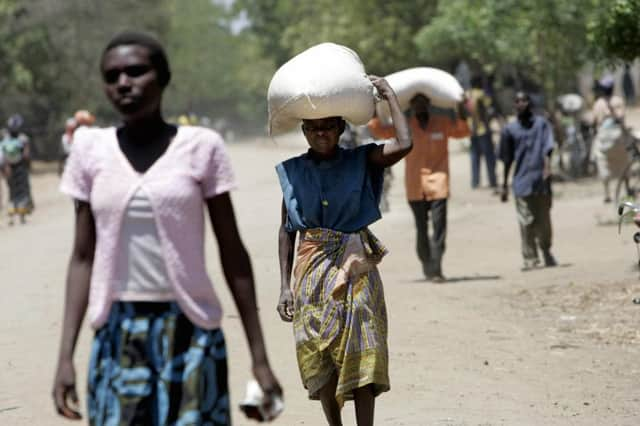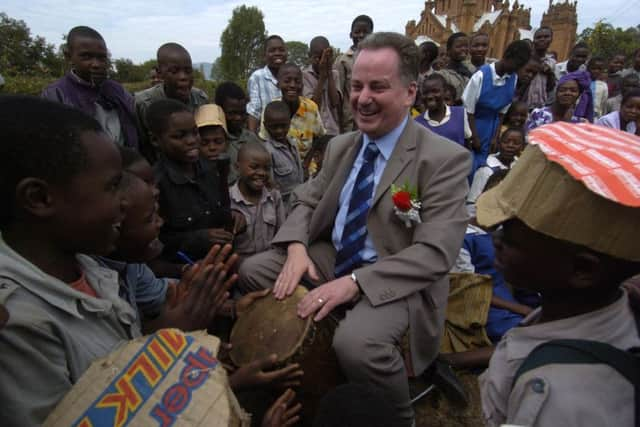Scots Malawi partnership still going strong after 150 years


Aid organisations, charities and volunteers have stepped up their efforts in recent months to help the landlocked country in south-east Africa as it recovers from its worst drought in 35 years.
The Scottish branches of Oxfam and Christian Aid are undertaking major fundraising campaigns, with the Scottish Government’s International Development Fund committed to matching the first £70,000 pledged.
Advertisement
Hide AdAdvertisement
Hide AdAround 6.5 million people in Malawi are facing severe food shortages, including 975,000 children under two who are at particularly high risk of malnutrition.


But drought relief is just one of the tasks being undertaken to further cement the links between Scots and Malawians, a relationship which stretches back to expeditions led by Dr David Livingstone.
“The civic friendship between Scotland and Malawi is stronger, more vibrant and more engaging today than ever before,” said a spokeswoman for the Scotland Malawi Partnership (SMP), a non-governmental membership organisation founded in 2004.
“We’re seeing more and more young people become involved in the partnership, themselves inspiring their families and communities to learn more and get involved.
“Almost half of all Scots now have a friend of family working with Malawi.”


The SMP is backing a campaign by ActionAid for the Westminster Government to update the UK-Malawi bilateral tax treaty, which dates back to the colonial era.
The treaty, which sets out how money moving between the two countries is taxed, was originally signed in 1955 while Malawi – then Nyasaland – was part of the British Empire.
MPs from all parties have backed the campaign and a new agreement between the two countries is expected in the coming weeks.
Advertisement
Hide AdAdvertisement
Hide AdThe Scottish Government, under then First Minister Jack McConnell, signed an inter-governmental cooperation agreement with Malawi in November 2005. Civil servants from both governments work together to advance health, education, civic governance and sustainable economic development.
The relationship treats both sides as equals – the Scottish Government does not advance projects in Malawi and instead works with partners to deliver programmes, an approach the SMP describes as “all too rare in the international development sector.”
The spokeswoman added: “The UN’s new sustainable development goals have partnership at their very heart.
“We think the dignified partnership between Scotland and Malawi is a powerful example for the effective delivery of these new sustainable development goals.
“Scotland can rightly be proud of the distinctive and effective approach it has taken to international development.”
Coffee was first introduced to Malawi in the 1870s with a plant from the Royal Botanic Garden, Edinburgh, and is now a growing export.
Earlier this year, Scots author Alexander McCall Smith gifted the use of the name of his hit series 44 Scotland Street, first published as a serial novel in The Scotsman, to create a Scotland Street Coffee brand – made from Malawian coffee.
The sales of this will support small-holder farmers as well as enable girls in Malawi to receive a secondary school education.